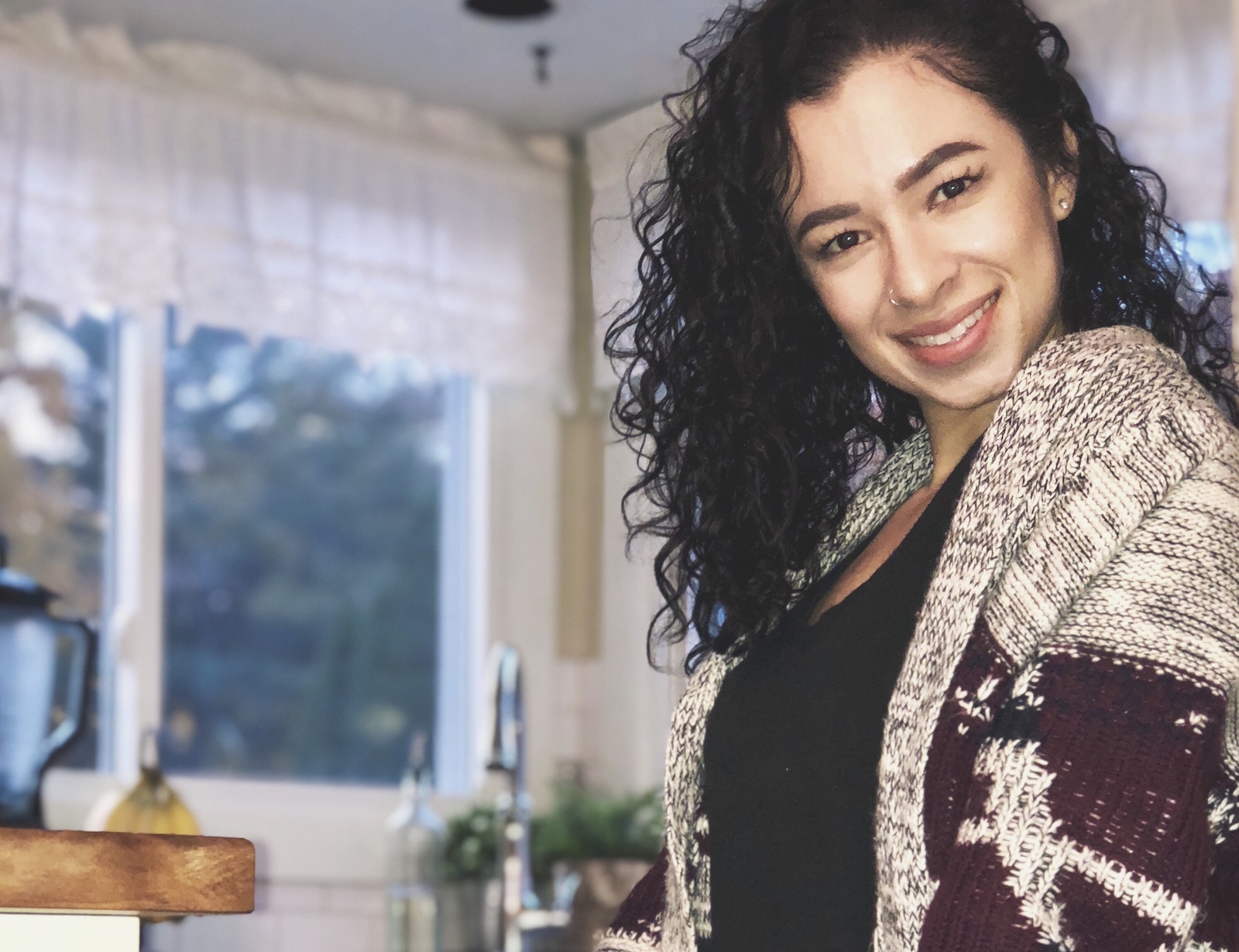How I Changed My Diet to Manage PCOS and Finally Feel Better
By Melanie SaavedraHome » Eat Empowered » How I Changed My Diet to Manage PCOS and Finally Feel Better
I got my period when I was very young, but as I got older something seemed off.
At one point, I hadn’t menstruated for a whole year. And although I had always been a very active child—playing a variety of sports like softball, track, dancing, and cheerleading—I never looked athletic. This may sound silly, but as a 4’10” peanut with curves, watching my weight creep up as other girls stayed slim definitely affected me.
I had my mom take me to the doctor, and that was when I was first diagnosed with PCOS (polycystic ovarian syndrome), a hormonal imbalance that can cause irregular menstruation, acne, obesity, and excess hair growth.
RELATED: What Every Woman Needs to Know About PCOS
To treat my PCOS, I was prescribed birth control pills, and I was on them for years. Except I didn’t get better, really.
Today, awareness about PCOS and how it affects a significant number of women is growing. Functional medicine physicians like Dr. Robin Berzin point out that birth control pills don’t cure or fix PCOS, they help manage the symptoms “but ultimately it just masks the problem.”
I didn’t know any of this then, and when I was 24, I started having gut issues, including extreme bloating and severe abdominal pain. No matter what I ate, my stomach would blow up like a balloon and GI issues would follow.
My Gut Health Journey
Here’s the story of how I started to feel better.
First, I refused to consider the pain “normal” any longer and went to speak with a naturopathic doctor. After various tests, she diagnosed me with SIBO (small intestine bacterial overgrowth). SIBO is the presence of excessive bacteria in the small intestine, which can be caused by low stomach acid, IBS, or overuse of antibiotics. While it’s impossible to know for sure what caused mine, the doctor mentioned that the many years on birth control pills could have contributed to the issue, and I felt the medication played a part. (Editor’s note: There is no proven specific link between birth control use and SIBO, but research is beginning to paint a picture of the ways hormonal birth control may impact gut health.)
I immediately stopped taking the pills and followed the “SIBO Diet” the best I could. The diet consisted of only consuming low-FODMAP foods, which is a very limited way of eating. It was a rocky journey, to say the least. I was still experiencing the chronic pain and discomfort, and along with the diet, my naturopathic doctor had me taking herbal supplements. I slowly started feeling better, but I never reached 100 percent, and my pockets were screaming with how much money I was spending on the office visits and supplements.
I decided I had to refocus, do my research, and continue the journey on my own.

(Image: Melanie Saavedra)
How I Started Eating to Manage PCOS
Fast forward to this year, and I’ve adopted an overall healthier diet with less processed foods and incorporated a daily probiotic along with my vitamins.
Instead of following broad recommendations, I cut out foods that I know are triggers for me, such as wheat, gluten, whey, and dairy. The amazing thing is that there are so many alternatives to my once favorite foods: Instead of drinking cow’s milk, I drink almond milk. Instead of a whey protein shake after my workouts, I use a plant-based protein powder. I drink a lot of water throughout the day (trying for that gallon!), and an evening cup of green tea helps to settle any bloating.
RELATED: An RD’s Advice on How to Eat to Manage PCOS
Here is a typical day for me:
Morning:
Cold green tea with aloe vera
Gluten-free old fashioned oats with peanut butter and berries
Lunch:
About four ounces grilled chicken, seasoned with my fave Trader Joe’s Everything But the Bagel Seasoning. Either cauliflower rice or half a sweet potato and LOTS of veggies
Snack:
Protein shake
Dinner:
About four ounces of ground turkey with zucchini noodles, low-sugar tomato sauce, and chickpeas
When I’m craving a nighttime snack to munch on, I like to grab a bowl of Buddha Bowl popcorn mixed with some dark chocolate chips and pair it with a hot cup of tea.
My eating habits have completely changed for the better and I developed a consistent exercise routine. The result is that I feel a lot happier mentally and physically. My perspective on my body has shifted: I treat it with love and care because I know it is powerful and just needs the right fuel and treatment to thrive. I love living this healthy lifestyle feeding my body nutritious foods, working hard at the gym, and taking the time to practice positive mental health.
Prior to this newfound sense of self-love, I used to think, “What is wrong with me? Why can’t I look like her? Why can’t I be someone else?” My mind would be filled with negative self-talk and nights of binging to ease those feelings of sadness and loneliness.
I’m lucky that since the beginning my diagnosis of PCOS was on the mild side, but as of today, I now have a regular menstrual cycle and all of the physical symptoms I once experienced are gone. One symptom that the doctor had mentioned was fertility issues, and I have yet to go through that experience, so only time will tell. But now I’m moving forward with optimism thanks to great gut health and improved mental health. I am empowered.
(Image: Shutterstock)
A woman on her healing journey from the inside out.
RECENT ARTICLES

Want a sneak peek inside the program?
Get FREE access to some of the core training materials that make up our signature program – Become a Nutrition Coach.
Get Access Eat Empowered
Eat Empowered













































































































































































































































































































































































































































































































































































































































































































































































































































































































































































































































































































































































































































































































































































































































